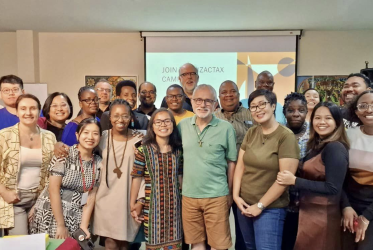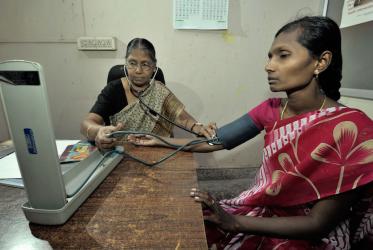Displaying 1 - 20 of 31
GEM School explores how to make new economic world order a reality
08 September 2023
WCC condemns massacre of farmers in Philippines
12 April 2019
All pilgrim routes lead to COP24
11 December 2018
#WCC70: A prayer about health and healing
20 July 2018
“Good healthcare a right, not a privilege,” says WCC-EAA
11 October 2017
“It’s time to be brave, to form diverse partnerships”
02 March 2017
“Health and healing for all people, that is the challenge”
28 February 2017
“Overcoming economic injustice” vision of WCC’s Athena Peralta
23 February 2017
New videos help congregations hasten HIV response
20 October 2016
Voices from HIV workshop reflect deep impact
07 April 2016














